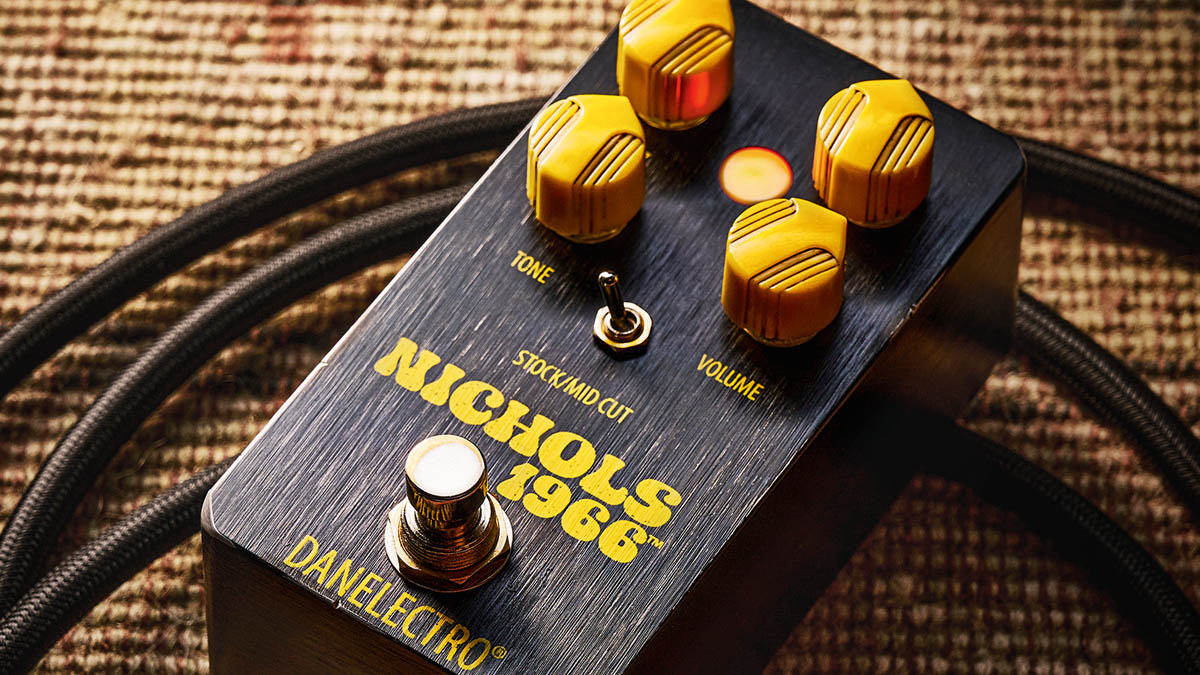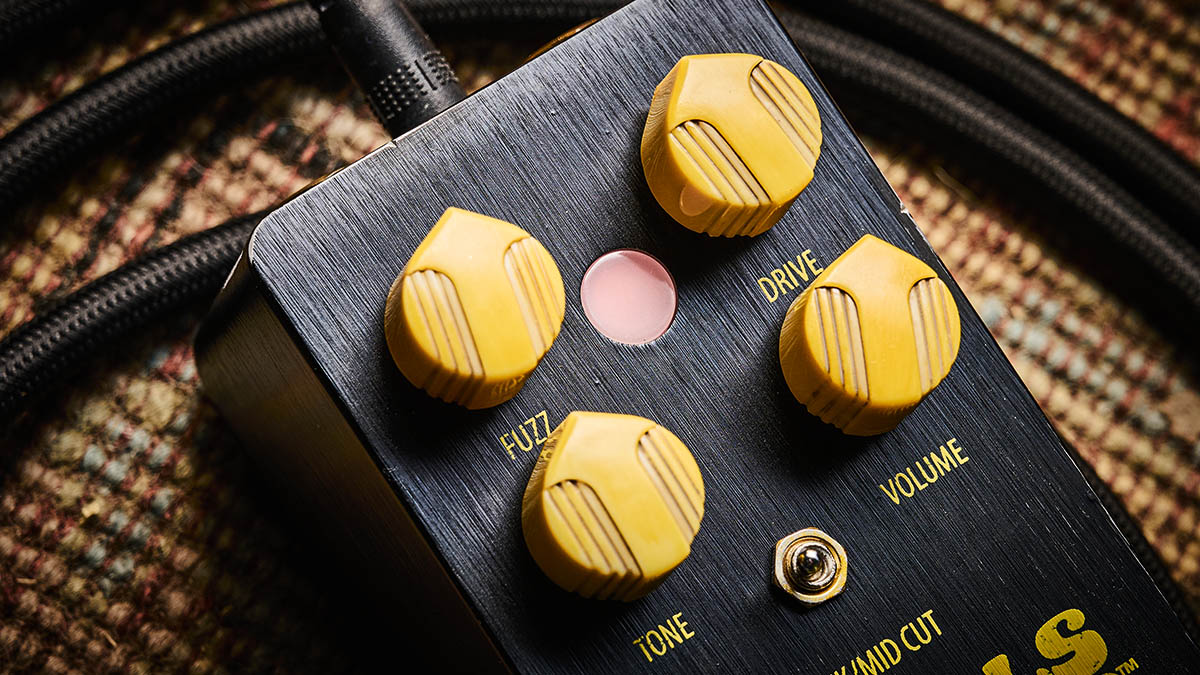
What were you doing aged 14? Chances are it wasn’t quite what Steve Ridinger was up to, which was designing the circuitry of a fuzz-meets-distortion pedal, building the units, and selling them on.
In 1966, Ridinger, current Danelectro boss and founder of Foxx Pedals, was living with his parents in Nichols Canyon, Los Angeles, where he came up with the circuit at the heart of this latest pedal release.
Named the Liverpool Fuzz Tone (and selling 3,000 units at the time), the design has now resurfaced as the Nichols 1966 and joins the Eisenhower Fuzz and 3699 Fuzz, among others, in Dano’s range of vintage-based pedals with distressed enclosures.
A Volume knob sets the output volume, while a Tone knob offers a wide range of variation – but it’s the juxtaposition of the Fuzz and Drive knobs that dials in your sound. Leaving the Fuzz at zero, you can dial in varying degrees of soft-clipping overdrive with the Drive control, from just adding a little edge to your clean sound, through to gritty, breaking-up drive.

Simply turning up the Fuzz knob without the Drive doesn’t result in fuzz per se, although you can dial in some usable drive/distortion tones, especially if you engage the Mid Cut toggle switch with its midrange scoop – which emphasizes top- and bottom-end – and make use of the Tone knob to roll off bottom-end as you move it clockwise.
What’s obvious is that the Fuzz and Drive knobs are best used in conjunction, and that’s what really brings the pedal to life – think of it like the drive adding the edge that the fuzz needs, or the fuzz giving thickness and body to the drive.
Between the two of them you can build in a wide range of raunchy distortion tones, all with good touch response and clean-up. But things get altogether more fuzz-like once the Fuzz knob is into its last quadrant. Advancing it further, combined with a chosen degree of Drive, you will get thick, sustaining fuzz.
Verdict
It’s good to see something fresh in dirt pedals – if an almost 60-year-old circuit could be described as such. The Nichols 1966 is a unique circuit and you’re sure to find it versatile. While its interactive knobs set you a task of dialing in your own sweet spot, there are plenty of those to be found for a variety of uses.
Specs

- PRICE: $199 / £189
- ORIGIN: China
- TYPE: Fuzz/distortion pedal
- FEATURES: True bypass
- CONTROLS: Volume, Tone, Fuzz, Drive, Stock/Mid Cut switch, Bypass footswitch
- CONNECTIONS: Standard input, standard output
- POWER: 9V DC adaptor (not supplied)
- DIMENSIONS: 59 (w) x 112 (d) x 55mm (h)
- CONTACT: Danelectro







